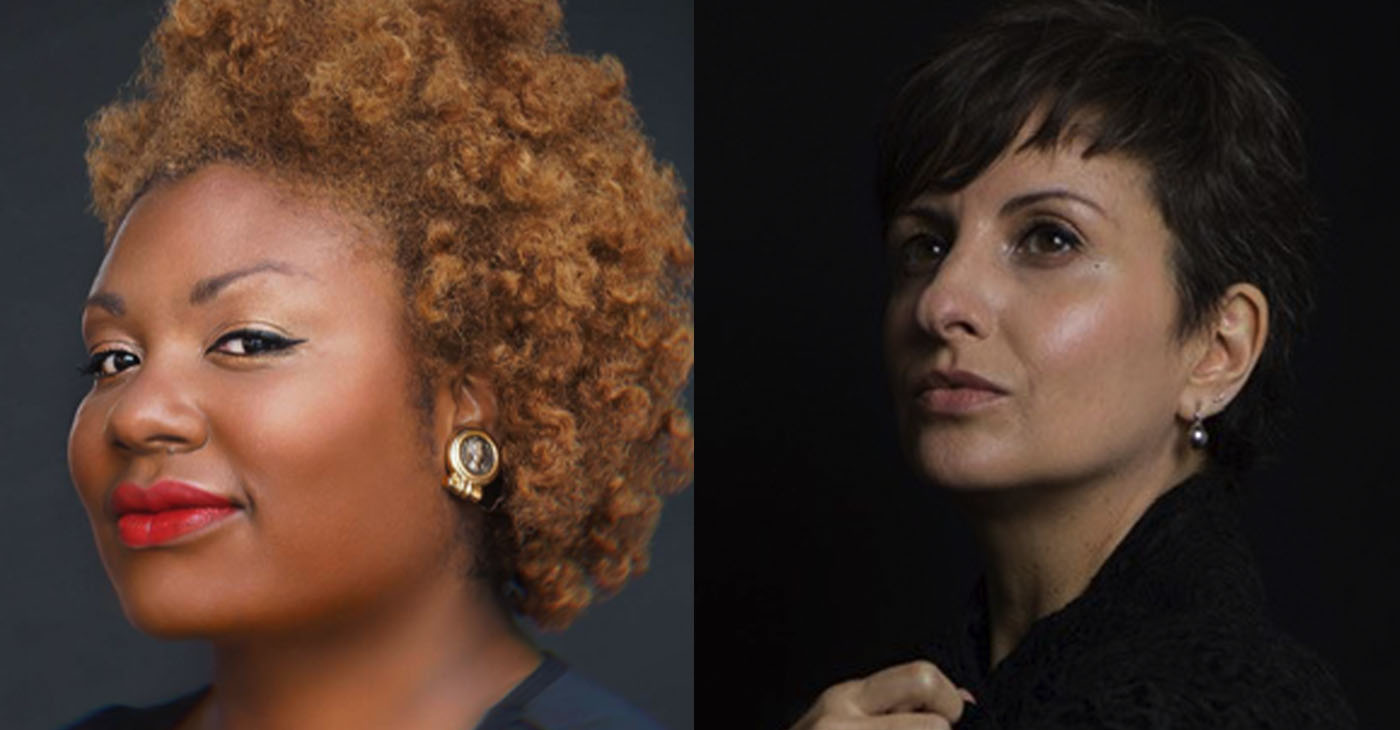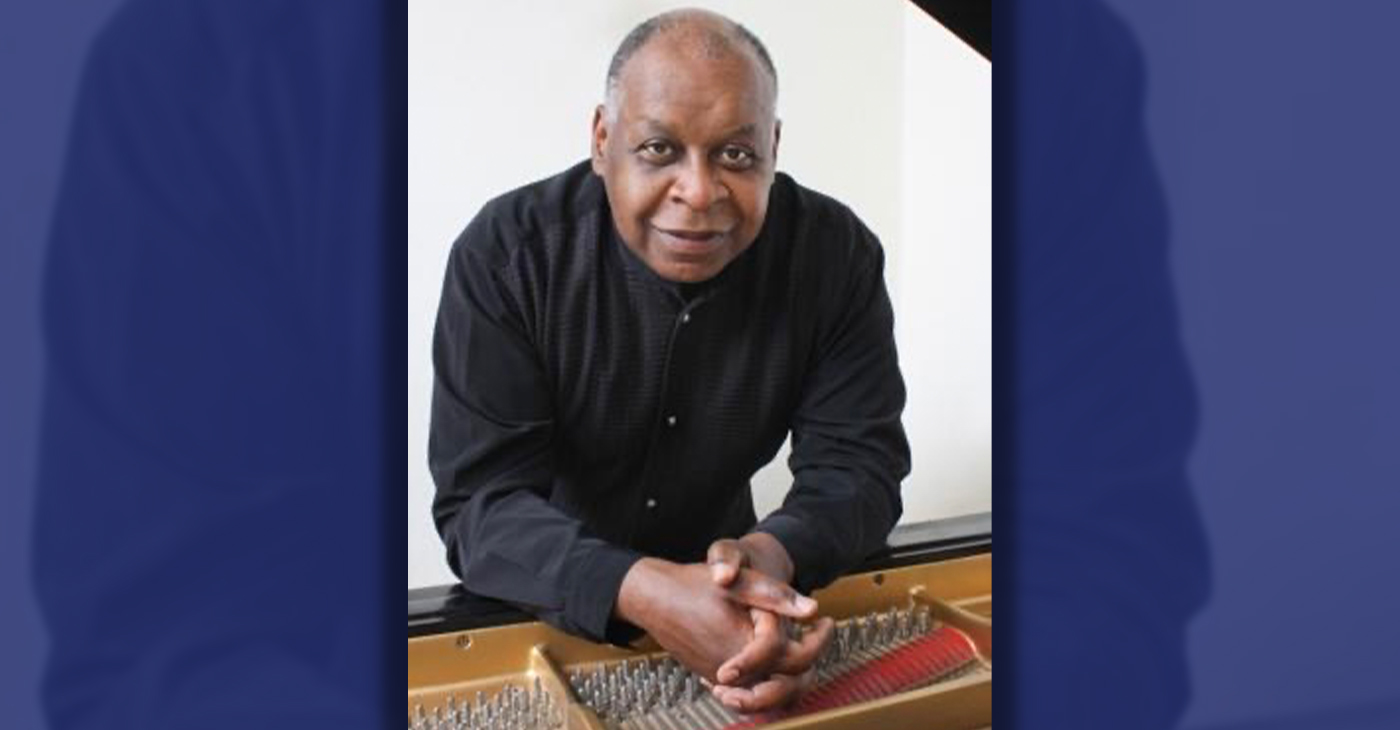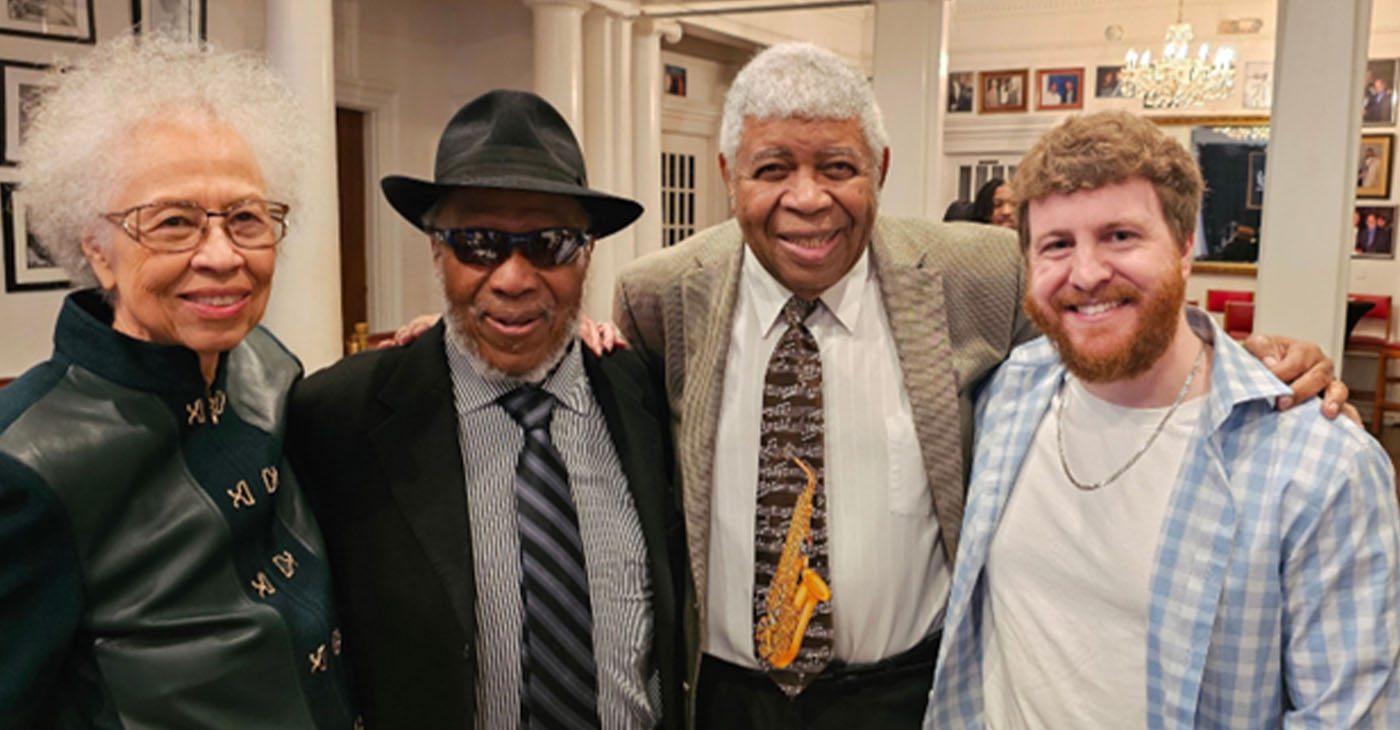Arts and Culture
San Francisco Concert “In Honor of Women”
Raegan Bryce-Davis, acclaimed as “one of the best mezzo sopranos of this generation” by The New York Observer and Jeanne Minette Cillers, South African pianist known as a pianistic poet, will perform at San Francisco’s Herbst Theatre on Jan. 27 at 7:30 p.m.

By Barbara Fluhrer
Raegan Bryce-Davis, acclaimed as “one of the best mezzo sopranos of this generation” by The New York Observer and Jeanne Minette Cillers, South African pianist known as a pianistic poet, will perform at San Francisco’s Herbst Theatre on Jan. 27 at 7:30 p.m.
They will perform some of their favorite repertoire, including works by women poets and composers: Margaret Bonds, Florence Price and living composers Maria Thompson Corley and Melissa Dunphy. Bryce-Davis will honor her mother by performing music she taught her.
Bryce-Davis recalled a fellow student in music school saying, “I never use women pianists. The focus is supposed to be on ME!” That sentiment never sat well with her, though she realized it was a popular one. “Perhaps it’s one reason I’ve always, quite purposely, had women pianists as long-term collaborative partners, and advocated for artists who are less represented, yet incredible at what they do.”
Bryce-Davis remembers being a terrified American mezzo, six years out of Manhattan School of Music, meeting her coach at a European audition in Belgium. Her coach, Jeanne-Minette Cillers sat confidently at the piano to perform arias they had performed together years before. “I sang as well as I could, and was about to leave the hall, suitcase, scores and shawl in hand, when I heard faint voices wafting from the ceiling speakers.
I hastily climbed on the make-up counter and stretched my ear to the speakers. The voice was my coach, brazenly informing the artistic director of my success as an artist. She said I would be a wonderful choice for the coveted position.”
Bryce-Davis went on to prove her right. The two women, now collaborators, will perform Saturday night at Herbst Theatre.
Bryce-Davis is an alum of San Francisco’s Merola Opera Program.
She appeared in San Francisco last year at the noontime concerts in “Majesty of The Spiritual,” curated by Robert Sims.
Tickets for the Jan. 27 concert can be ordered at (415)577-0325.
Arts and Culture
Kedrick Armstrong: New Music Director for the Oakland Symphony
The Oakland Symphony Announced Kedrick Armstrong as its Next Music Director. In addition to conducting the orchestra’s public concerts, Armstrong will also actively participate in the Oakland Symphony’s many education and community engagement programs, designed to inspire a love of music in people of all ages.

By Post Staff
The Oakland Symphony Announced Kedrick Armstrong as its Next Music Director.
In addition to conducting the orchestra’s public concerts, Armstrong will also actively participate in the Oakland Symphony’s many education and community engagement programs, designed to inspire a love of music in people of all ages.
Armstrong is the successor to previous music director and Conductor Michael Morgan, who passed away in 2021 after a 30-year tenure at the Symphony.
Armstrong will open the Oakland Symphony 2024-2025 season on October 18.
Armstrong, who is 29 and hails from Georgetown, South Carolina, is currently the creative partner and principal conductor of the Knox-Galesburg Symphony.
The Chicago Tribune has praised Armstrong for his ability to “simply let the score speak for itself.” He enjoys a wide range of repertoire, spanning early music to premiering new works, using his joy and curiosity for all music to cultivate understanding and collaboration within diverse communities.
“I am deeply honored and grateful for the opportunity to serve as the new music director of the Oakland Symphony,” Armstrong said. “As a Black conductor, I find it humbling to stand on the shoulders of both Michael Morgan and Calvin Simmons,” the most recent and the first African American music directors of the Symphony, respectively.
Armstrong led three programs at the Symphony between 2022 and early 2024, which showcased his broad knowledge of the classical repertoire and enthusiasm for spotlighting diverse voices.
On his Oakland Symphony subscription debut on Feb. 16, Armstrong led the world premiere of “Here I Stand: Paul Robeson,” an oratorio by Carlos Simon on a libretto by Dan Harder, commissioned by the Oakland Symphony.
Armstrong was selected unanimously by the Oakland Symphony’s board of directors and musicians after an extensive two-year search. “The search committee was overwhelmed by Kedrick’s scholarship and curiosity about all kinds of music, from classical and jazz to gospel and hip-hop,” said. Dr. Mieko Hatano, executive director of the Oakland Symphony. “We are thrilled to have him join us at the Oakland Symphony.”
Arts and Culture
Faces Around the Bay Dr. Carl Blake, Pianist
Born in Liberty, Missouri, Carl Blake, a virtuoso and respected pianist, made his most recent migration to the East Bay in 1999. One might have seen him performing recently at Noontime Concerts in San Francisco, or at the Piedmont Center for the Arts in Oakland. He is Director of Music at The Church for the Fellowship of All Peoples in San Francisco. He was also co-organizer and collaborative pianist at Herbst Theater for The Majesty of the Spirituals concert in 2022 and has held several church positions in the Bay Area.

By Barbara Fluhrer
Born in Liberty, Missouri, Carl Blake, a virtuoso and respected pianist, made his most recent migration to the East Bay in 1999.
One might have seen him performing recently at Noontime Concerts in San Francisco, or at the Piedmont Center for the Arts in Oakland. He is Director of Music at The Church for the Fellowship of All Peoples in San Francisco. He was also co-organizer and collaborative pianist at Herbst Theater for The Majesty of the Spirituals concert in 2022 and has held several church positions in the Bay Area.
Blake obtained a Bachelor of Music from Boston University and continued post-baccalaureate studies in Jamaica before earning a Master of Arts in Music at San Jose State University. He was the recipient of two Fulbright residencies in Honduras and completed a third residency at the University of St. Petersburg in Russia. He has a Doctor of Musical Arts from Cornell University.
At age 19, Blake, then an undergraduate piano major at Boston University, was “discovered” by Impresario Dr. W. Hazaiah Williams, who is the Founder and Director of Today’s Artists/Four Seasons Arts.
Williams honored Blake by awarding him the first Marian Anderson Young Artist Award. Anderson personally presented the award at the Masonic Auditorium in S.F. Subsequently, Blake was presented by Dr. Williams in his San Francisco debut at The Herbst Theatre. Williams subsidized a year of study abroad for Blake at the Paris Conservatory of Music. Additionally, Williams sponsored Blake’s New York Weill Hall debut, where he has performed twice since. Blake performed several times at the Yachats Music Festival in Oregon.
Blake continues to perform nationally and abroad. His hobbies are reading, baking and travel. He says, “I’m still pumping ivories, as Belgian pianist Jeanne Stark described the disciplined practice of concert piano.”
Arts and Culture
Oakland Jazz Great Offers Master Class as City Declares “John Handy Day”
World-renowned jazz master saxophonist John Handy, a McClymond’s High School graduate, was presented with a Mayor of Oakland Proclamation declaring Feb. 12, as John Handy Day in the city. Handy is most notably known as the featured saxophonist for Charles Mingus on “Goodbye Pork Pie Hat” from the album “Mingus Ah Um” (1959) and on “Hard Work” from his own album “Hard Work” (1976).

By Conway Jones
World-renowned jazz master saxophonist John Handy, a McClymond’s High School graduate, was presented with a Mayor of Oakland Proclamation declaring Feb. 12, as John Handy Day in the city.
Handy is most notably known as the featured saxophonist for Charles Mingus on “Goodbye Pork Pie Hat” from the album “Mingus Ah Um” (1959) and on “Hard Work” from his own album “Hard Work” (1976).
“John Handy is a jazz icon and an inspiration to musicians everywhere,” said Ayo Brame, a 16-year-old Oakland tenor saxophone player who is enrolled at the Oakland School for the Arts.
In celebration of this day, the reception in downtown Oakland at Geoffrey’s Inner Circle was a gathering of artists, young and old, coming together in his honor and celebrating his 91st birthday.
Handy presented a Saxophone Colossus free masterclass for musicians. This class afforded a rare opportunity to learn about the saxophone from an aficionado. The class was free and open to all – saxophonists, vocalists, aficionados, students, and casual listeners.
“As a longtime friend for over 60 years, and fellow musician who has had numerous opportunities to share the stage with John, it has always been a pleasure performing with him and hearing his creative interpretations of the music and his gift of ease inspiring the next generation of jazz musicians,” said Roger Glenn, a multi-instrumentalist.
-

 Activism4 weeks ago
Activism4 weeks agoOakland Post: Week of March 27 – April 2, 2024
-

 #NNPA BlackPress4 weeks ago
#NNPA BlackPress4 weeks agoBeloved Actor and Activist Louis Cameron Gossett Jr. Dies at 87
-

 Community2 weeks ago
Community2 weeks agoFinancial Assistance Bill for Descendants of Enslaved Persons to Help Them Purchase, Own, or Maintain a Home
-

 Activism3 weeks ago
Activism3 weeks agoOakland Post: Week of April 3 – 6, 2024
-

 Business2 weeks ago
Business2 weeks agoV.P. Kamala Harris: Americans With Criminal Records Will Soon Be Eligible for SBA Loans
-

 Community2 weeks ago
Community2 weeks agoAG Bonta Says Oakland School Leaders Should Comply with State Laws to Avoid ‘Disparate Harm’ When Closing or Merging Schools
-

 Activism2 weeks ago
Activism2 weeks agoOakland Post: Week of April 10 – 16, 2024
-

 Community1 week ago
Community1 week agoOakland WNBA Player to be Inducted Into Hall of Fame























































